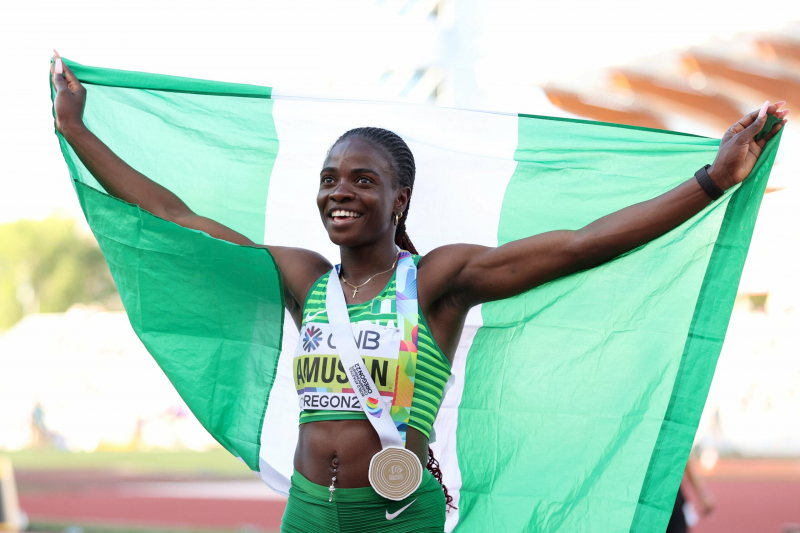Sports and recreation
Wrestling was a vehicle for expressing individual and social identity, status, and prestige in precolonial times. Other sports were introduced to Nigeria by British colonizers in the early twentieth century, including football (soccer), boxing, athletics (track and field), and tennis, which were spread through mission schools, railroad companies, the armed forces, and the colonial bureaucracy. Following the country's independence in 1960, the Nigerian government used domestic and international sporting events to instill a sense of national identity among its various ethnic groups and gain global recognition. In Nigeria, football is a national obsession.
The Super Eagles, led by players such as Nwanko Kanu and Jay-Jay Okocha, reached the World Cup finals in 1994, 1998, and 2002, and won the gold medal at the 1996 Olympics. Similarly, the national women's team has reached the Women's World Cup finals on numerous occasions. Hakeem Olajuwon, who became a superstar in the National Basketball Association in the United States, mirrored the acclaim won by many Nigerian footballers playing abroad, sparking widespread interest in the sport in Nigeria by the end of the twentieth century. Nigerian boxers have also achieved international success, most notably Richard Ihetu, the middleweight and light-heavyweight world champion who fought under the alias "Dick Tiger." Nigerians have excelled in boxing and athletics in the Olympic Games, to which the country sent its first team in 1952, in Helsinki.









